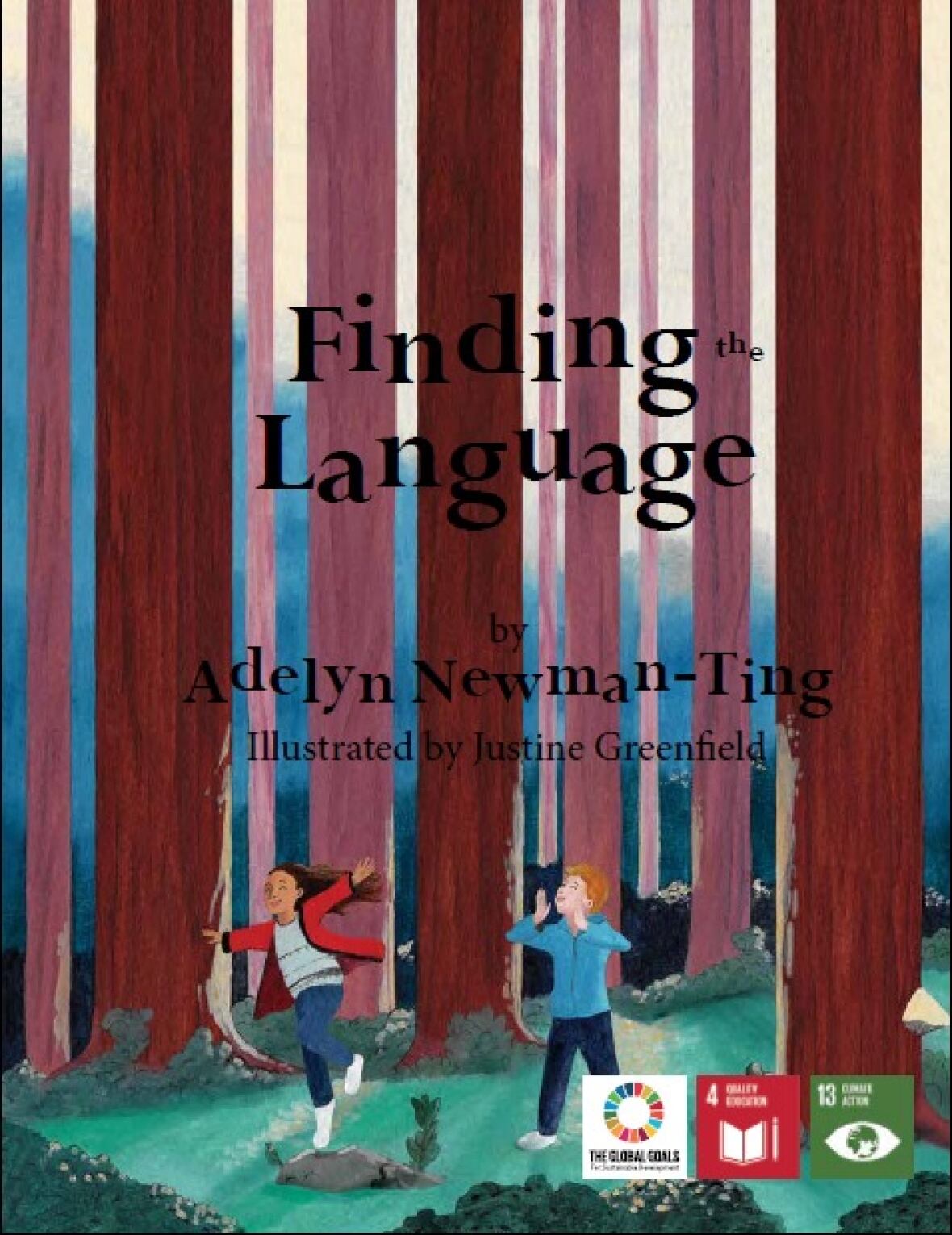11-year-old B.C. author Adelyn Newman-Ting celebrates Kwakʼwala language in her book Finding the Language


Adelyn Newman-Ting is an 11-year-old student from Victoria, B.C., and author of the book Finding the Language. The imaginative book has elements of mystery, intrigue and adventure, complete with clues decoding and a secret clubhouse. It won the Voices of Future Generations competition, an international prize organized by UNESCO for stories about language preservation written by Indigenous children.
Finding the Language follows two friends searching for terms in the Kwak'wala language, with help from the Raven, the Wolf and elders they encounter.
Newman-Ting is Kwakwaka'wakw and Coast Salish, plus English, Irish and Scottish on her father's side and Chinese Canadian on her mother's side. As the writer Monique Gray Smith writes in the foreword to Finding the Language, the young writer helps readers understand the beauty and importance of languages by infusing the Kwakʼwala language throughout the story.
Newman-Ting spoke with Shelagh Rogers about Finding the Language.

What inspired Finding the Language?
My dad found out about the competition and then I did a bunch of thinking. Then I just thought of that idea, basically that there's two kids and they are trying to save the language. They meet a raven and a wolf and they get a bunch of other kids together and they go on a big journey to find all the words.
It's sort of like a treasure hunt. The Raven and the Wolf actually talk. How important is that to the story?
That's pretty important that they talk because they say a lot of important things and do a lot of important things. They are some of the main characters in this story.
They meet a raven and a wolf and they get a bunch of other kids together and they go on a big journey to find all the words.
They introduce the project of trying to find the language, and they kind of own the tree that acts as the home base. The wolf guides them through the path and the raven flies around telling kids about it.
Do you think we've forgotten how to speak to animals or how to listen to what they're saying?
I don't really know. Could be a legend or it could have happened.
They actually start sprinkling clues through the forest, and the clues lead to more clues and some very interesting people. Who do they encounter in the forest?
A lot of elders.
Why is it elders that they meet up with?
Because they would know more of the language realistically than like teenagers.
Your grandfather, Victor, was here just a few minutes ago and he lost his language, didn't he? How did that happen?
Well, he went to residential school and then they were forcing them to lose their language and their culture.
The sustainability goals, those are some of my main goals to make the world a more sustainable place, to be a more sustainable person because we are the future and we have to live after this current time.
What happens when a language disappears? What do you think we lose?
Well, some people lose the language that they speak. We lose out on learning a lot of things; if, in the olden times, people encrypted that language somewhere and scientists found it but they didn't know what it meant, then you might lose out on valuable learning experiences.
You also include references to the sustainable development goals of the United Nations and the United Nations Declaration on the Rights of Indigenous People. You folded in very nicely. Why was that important to do?
The sustainability goals, those are some of my main goals to make the world a more sustainable place, to be a more sustainable person because we are the future and we have to live after this current time. We're the ones who are going to have to deal with it later if we don't take action now on the climate.
And the United Nations Declaration, why is that important to you?
Because it's part of my culture. And it's important to put it in there to let people know that some languages are endangered, even if they don't speak them or know about them.
It's illustrated by Justine Greenfield. What did you think of her illustrations?
I thought they are really nice. I think they really look like what I envisioned them to be.
Are you encouraged to write another book?
Yeah. At the end of the book, it says they set out together on their next adventure, which means there's another thing coming.
This conversation has been edited for length and clarity.
